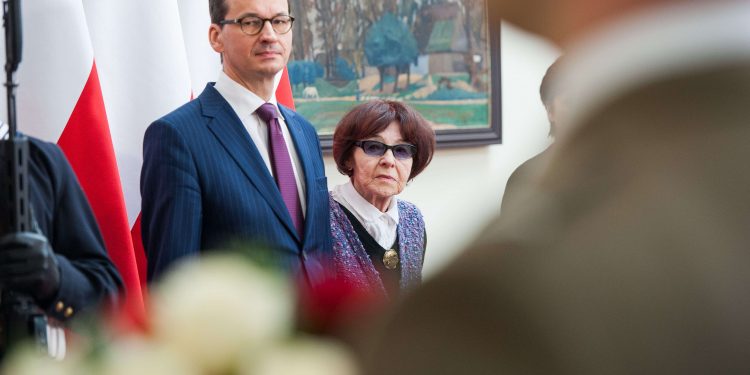Poland, a longstanding supporter of Ukraine, has declared a halt in its weapon supplies to its neighboring country amid a growing diplomatic rift centered around grain-related issues. Prime Minister Mateusz Morawiecki stated that Poland’s primary focus has shifted towards equipping itself with more advanced weaponry for self-defense. Poland had previously sent 320 Soviet-era tanks and 14 MiG-29 fighter jets to Ukraine, but its resources are now limited.
These developments coincide with escalating tensions between the two nations. Poland summoned Ukraine’s ambassador in response to President Volodymyr Zelensky’s remarks at the United Nations, where he criticized Poland, Hungary, and Slovakia for extending a ban on Ukrainian grain exports. Zelensky’s comments, which accused some European friends of using solidarity as political theater, were met with denunciation by Warsaw as unjustified.
Prime Minister Morawiecki’s announcement came after the Ukrainian ambassador had been summoned to Poland’s foreign ministry in response to Zelensky’s speech. Morawiecki emphasized Poland’s commitment to aiding Ukraine in countering the “Russian barbarian” threat through the maintenance of a military hub. However, Poland was adamant about not allowing its grain imports to destabilize its markets.
Poland’s military arsenal has been significantly depleted due to transfers to Ukraine, but the country is in the process of replacing its outdated equipment with modern Western-made weaponry. While arms exports to Ukraine will not cease entirely, Polish manufacturer PGZ is scheduled to deliver around 60 Krab artillery weapons in the coming months, primarily fulfilling pre-existing contracts.
In response to the prime minister’s remarks, Polish state assets minister Jacek Sasin suggested that the situation might evolve in the future. These developments have unfolded amidst an acrimonious election campaign in Poland, and the ruling Law and Justice party has vocally supported Polish farmers concerned about the impact of Ukrainian grain imports.
The dispute surrounding grain imports into Central Europe arose as Ukraine sought alternative overland routes for its exports due to Russia’s full-scale invasion, resulting in substantial grain shipments to Central European countries. While the European Union initially imposed a temporary ban on grain imports to protect local farmers, it chose not to renew the ban when it expired in mid-September. However, Hungary, Slovakia, and Poland decided to maintain the ban, despite the European Commission’s assertion that it was not within individual EU member states’ purview to determine broader trade policies.
Ukraine has filed complaints with the World Trade Organization (WTO) against these countries, alleging violations of international obligations. Poland, undeterred, has pledged to keep the ban in place, asserting that WTO complaints do not sway its position. Prime Minister Morawiecki even warned of expanding the list of banned products if Ukraine escalates the grain dispute. Nonetheless, the three countries have agreed to continue allowing grain transit to other markets through their territories.
Ukraine has called for a more constructive approach to resolving the dispute, urging Poland to set aside emotions. The French Foreign Minister noted that an EU study concluded that Ukrainian grain imports would not seriously harm European farmers and lamented the growing tensions. Poland has been a staunch supporter of Ukraine, advocating for assistance such as Leopard 2 battle tanks from Germany, offering fighter jets, and hosting over 1.5 million Ukrainian refugees.

